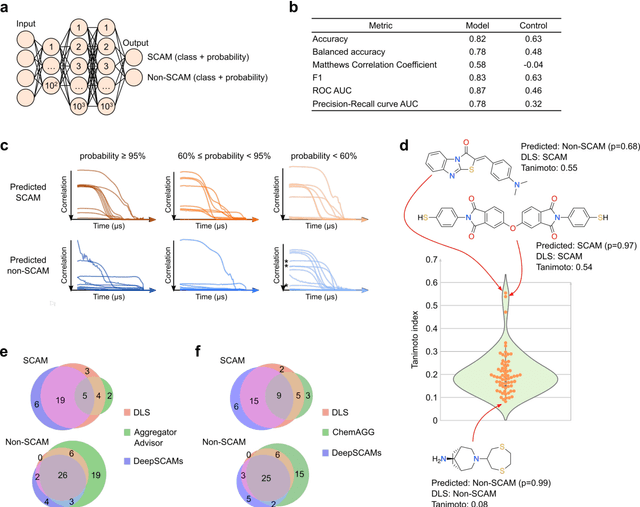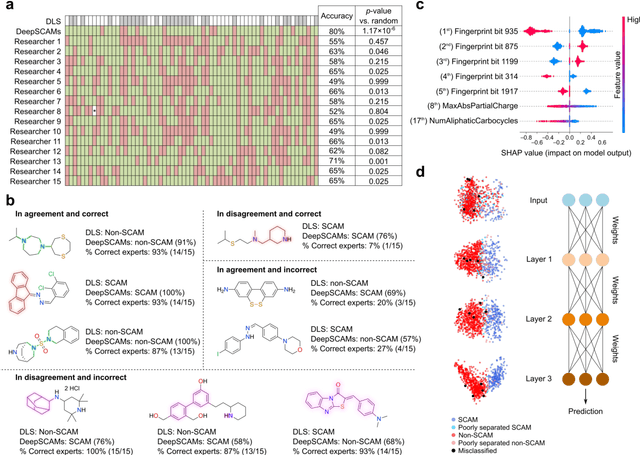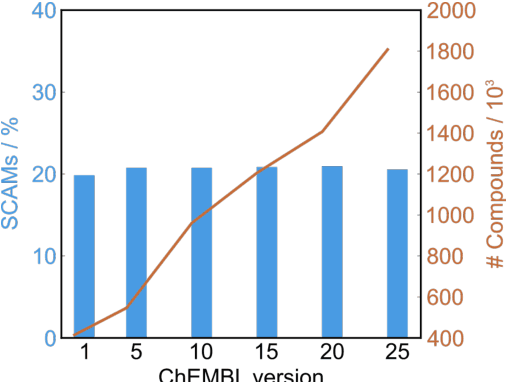Ann Yang
Combating small molecule aggregation with machine learning
May 01, 2021


Abstract:Biological screens are plagued by false positive hits resulting from aggregation. Thus, methods to triage small colloidally aggregating molecules (SCAMs) are in high demand. Herein, we disclose a bespoke machine-learning tool to confidently and intelligibly flag such entities. Our data demonstrate an unprecedented utility of machine learning for predicting SCAMs, achieving 80% of correct predictions in a challenging out-of-sample validation. The tool outperformed a panel of expert chemists, who correctly predicted 61 +/- 7% of the same test molecules in a Turing-like test. Further, the computational routine provided insight into molecular features governing aggregation that had remained hidden to expert intuition. Leveraging our tool, we quantify that up to 15-20% of ligands in publicly available chemogenomic databases have the high potential to aggregate at typical screening concentrations, imposing caution in systems biology and drug design programs. Our approach provides a means to augment human intuition, mitigate attrition and a pathway to accelerate future molecular medicine.
 Add to Chrome
Add to Chrome Add to Firefox
Add to Firefox Add to Edge
Add to Edge